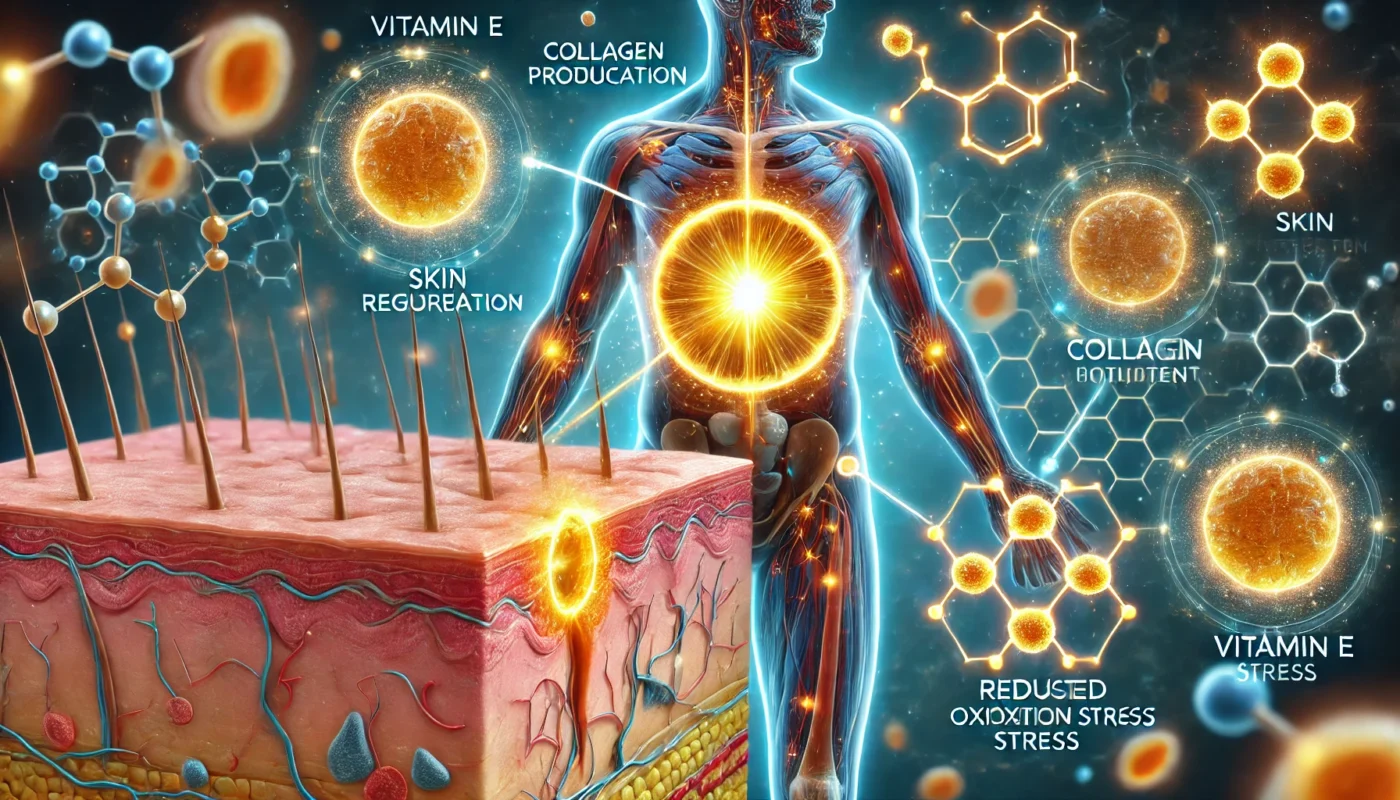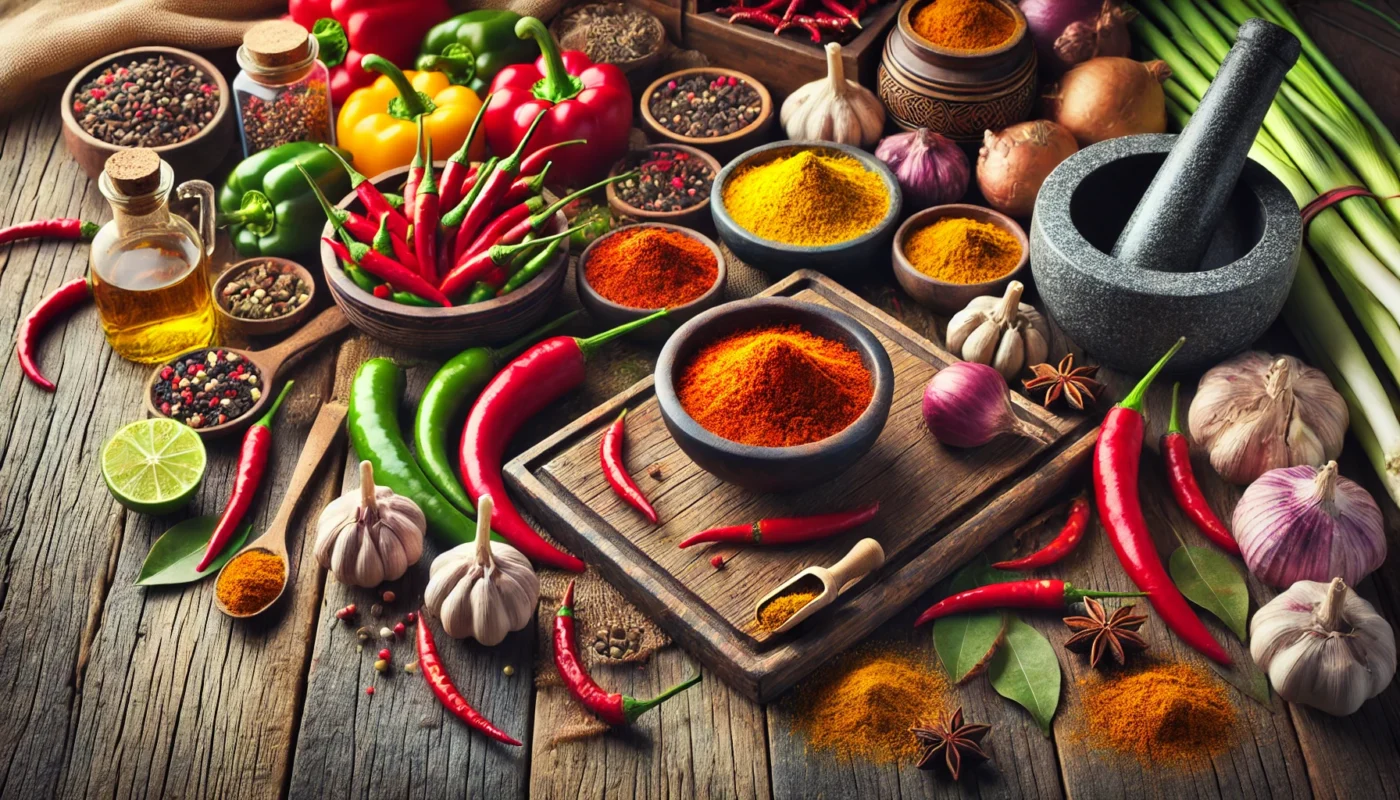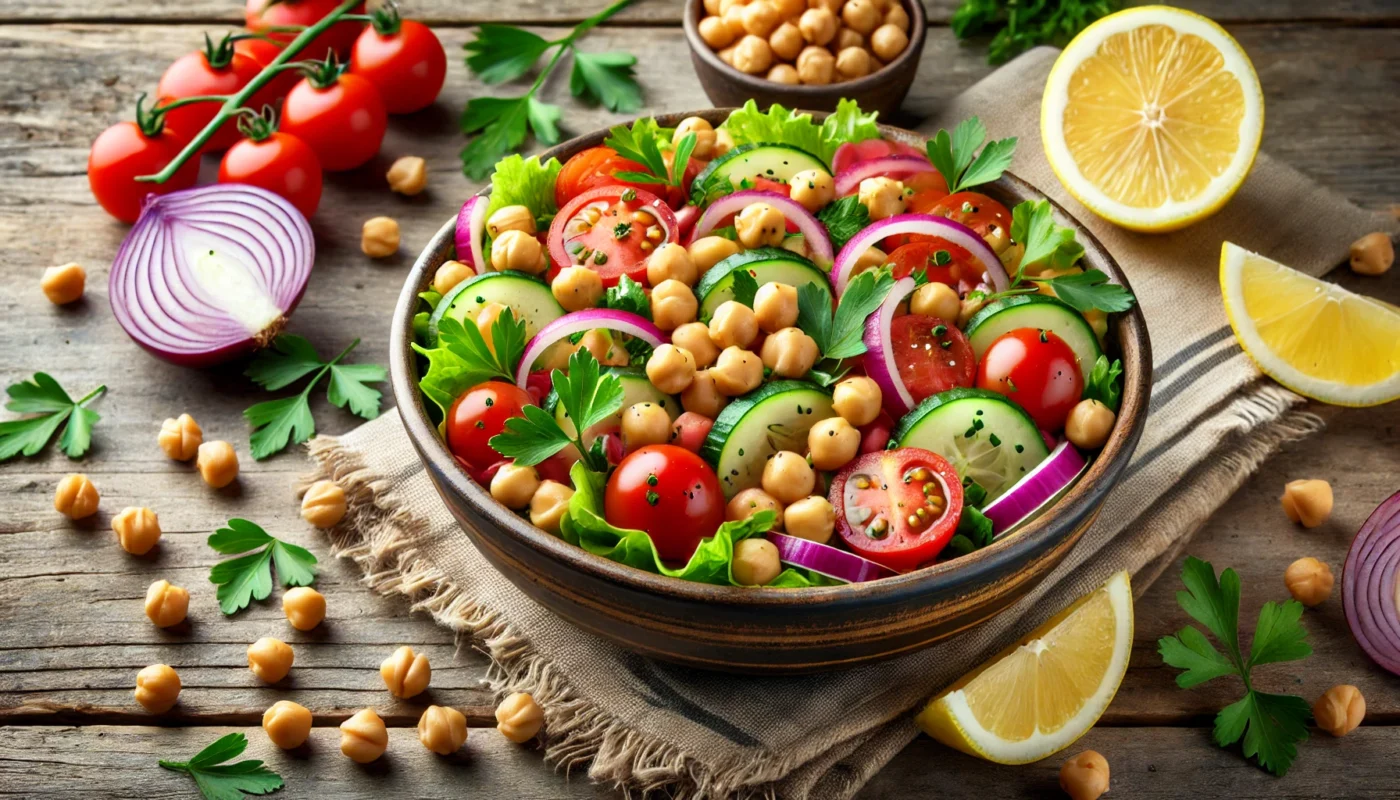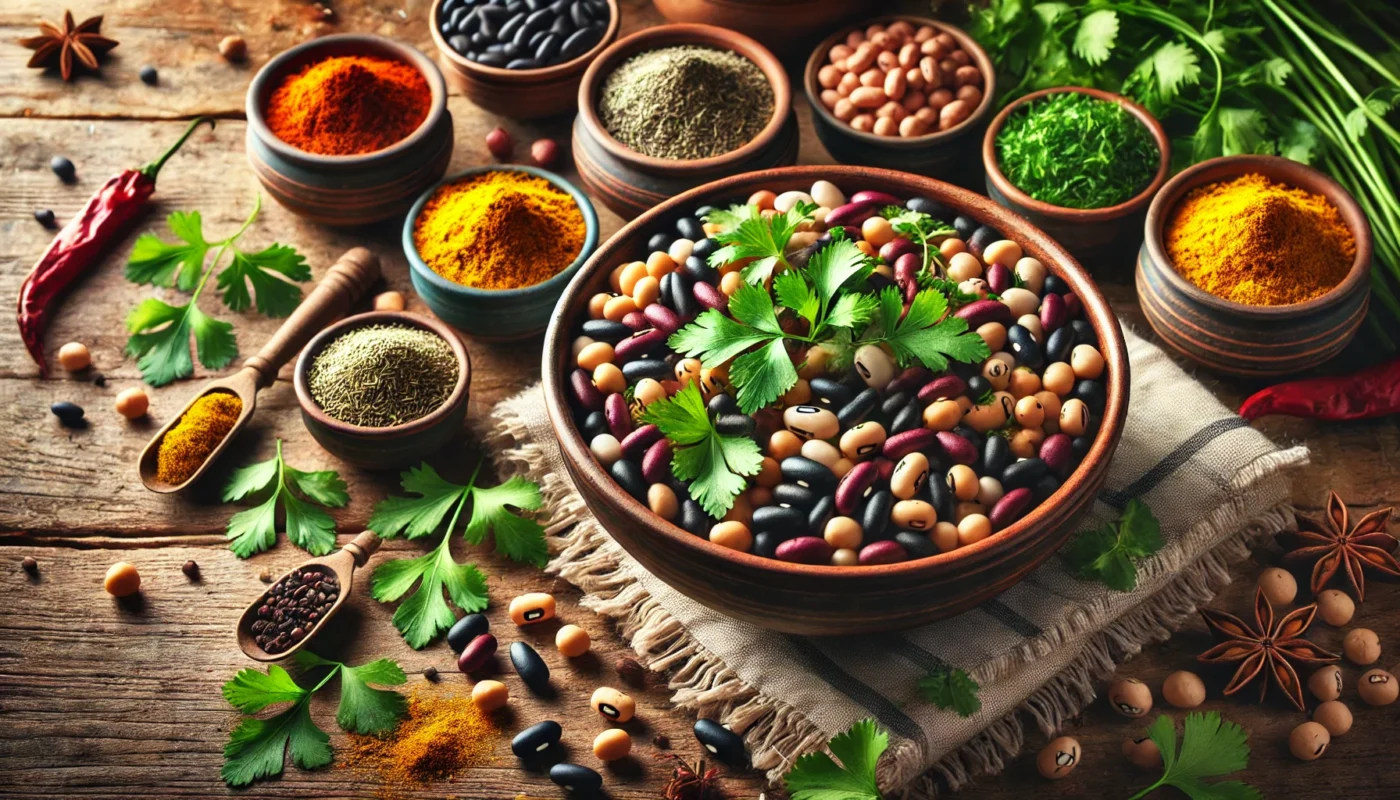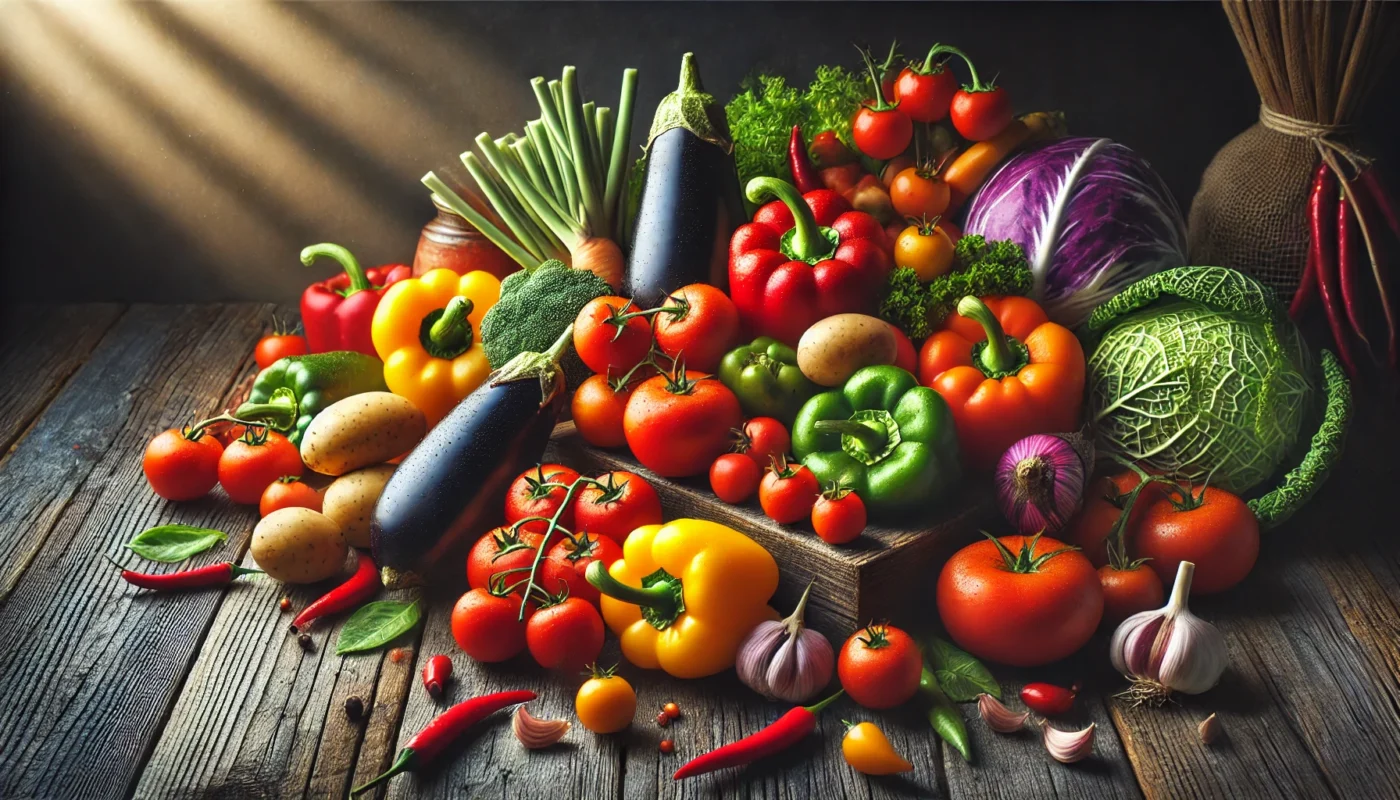Vitamin E is a fat-soluble antioxidant that plays a crucial role in protecting your body’s cells from oxidative stress. This nutrient is particularly vital in skin health as it aids in fighting off free radicals that can delay the healing process. According to scientific studies, Vitamin E not only protects against environmental damage but also promotes collagen production, which is fundamental for skin repair and regeneration.
Tag Archives: Cooking Tips
Inflammation is a natural and essential part of the body’s healing process. However, chronic inflammation can lead to various health issues, including heart disease, arthritis, and certain cancers. Fortunately, incorporating anti-inflammatory foods into your diet can help mitigate these risks and promote overall well-being. This article will delve into a selection of flavorful anti-inflammatory foods and provide practical meal ideas to incorporate them into your daily routine.
Spicy foods are a staple in many cuisines worldwide. They add a kick to our meals, tantalizing our taste buds with their heat.
But have you ever wondered about the effects of these fiery foods on your body? Specifically, do spicy foods cause inflammation?
Inflammation is a natural response of our body to injury or infection. It’s a double-edged sword, beneficial in moderation but harmful when chronic.
Spicy foods, particularly those containing capsaicin, can trigger an immediate inflammatory response. This is your body’s defense mechanism, reacting to the perceived “heat” as a potential threat.
However, the relationship between spicy foods and inflammation is not as straightforward as it seems. Regular consumption of spicy foods may actually have anti-inflammatory effects.
This article aims to explore the complex link between spicy foods and inflammation. We’ll delve into the science behind the heat, the potential benefits, and the risks.
Whether you’re a fitness enthusiast, a health enthusiast, or a medical patient, this comprehensive guide will help you understand how to incorporate or moderate spicy foods for improved health and wellbeing. Let’s embark on this spicy journey together.
Sweet potatoes are a staple in many kitchens. Their sweet, earthy flavor and vibrant colors make them a favorite among food lovers. But did you know they also pack a powerful health punch?
These humble tubers are rich in vitamins, minerals, and antioxidants. These nutrients contribute to their potential anti-inflammatory properties. But what does this mean for you?
In this article, we’ll delve into the science behind sweet potatoes and inflammation. We’ll explore their nutritional profile and how it can benefit your health.
We’ll also debunk common myths and provide practical tips on incorporating sweet potatoes into your diet. Whether you’re a fitness enthusiast, a health-conscious individual, or someone managing a health condition, this article is for you.
Join us as we explore the anti-inflammatory benefits of sweet potatoes. Let’s discover how this versatile vegetable can contribute to your journey towards improved health and wellbeing.
In the quest for optimal health, the foods we consume play a pivotal role. One food that has sparked interest and debate is the humble chickpea.
Also known as garbanzo beans, chickpeas are a staple in many diets worldwide. They’re packed with protein, fiber, and a host of vitamins and minerals. But the question that often arises is: are chickpeas inflammatory or anti-inflammatory?
Inflammation is a natural process in the body. However, when it becomes chronic, it can contribute to various diseases. Hence, understanding the impact of our diet on inflammation is crucial.
Chickpeas, with their rich nutrient profile, have been linked to numerous health benefits. But do these benefits extend to managing inflammation? This is a question we aim to answer.
In this comprehensive guide, we’ll delve into the scientific research surrounding chickpeas and inflammation. We’ll explore their nutritional content, potential health benefits, and any concerns related to inflammation.
Our goal is to provide you with a clear understanding of where chickpeas stand in the inflammation debate. We’ll also offer practical advice on how to incorporate them into your diet for improved health and wellness.
So, let’s embark on this journey to discover: Do chickpeas cause inflammation in the body?
Beans are a staple in many diets worldwide. They’re packed with nutrients and offer numerous health benefits.
But, are beans anti-inflammatory? This question has sparked much interest and debate.
Inflammation is a natural response of our bodies. It’s crucial for healing and protecting us from harm. However, when inflammation becomes chronic, it can lead to various health issues.
Diet plays a significant role in managing inflammation. Certain foods can either trigger or reduce inflammation.
Beans, as part of the legume family, are rich in fiber, protein, and antioxidants. These components are known for their potential anti-inflammatory effects.
But, there’s more to the story. The relationship between beans and inflammation is complex and multifaceted.
This article aims to delve into this topic. We’ll explore the nutritional profile of beans, their potential anti-inflammatory properties, and how to incorporate them into your diet.
Whether you’re a fitness enthusiast, a health-conscious individual, or a medical patient, this comprehensive guide will provide you with valuable insights. Let’s embark on this journey to better understand the power of beans in combating inflammation.
Nightshade vegetables are a topic of intrigue and confusion for many. They belong to the Solanaceae family, which includes common foods like tomatoes, potatoes, and peppers.
But what makes them so controversial?
Some claim they cause inflammation and exacerbate conditions like arthritis. Others praise their nutritional benefits, highlighting their rich content of vitamins, minerals, and antioxidants.
This article aims to demystify nightshades. We’ll delve into the scientific research behind these foods, addressing common misconceptions and providing practical advice.
Whether you’re a fitness enthusiast, a health enthusiast, or a medical patient, this comprehensive guide will help you understand the role of nightshades in your diet.
We’ll explore questions like: Are onions in the nightshade family? Do tomatoes cause arthritis? Are potatoes inflammatory?
By the end, you’ll have a clear understanding of nightshades and their impact on your health. You’ll be equipped to make informed dietary choices that support your wellbeing.
Hypertension, or high blood pressure, affects nearly half of adults globally, according to the World Health Organization (WHO). Characterized by a consistent reading of 130/80 mmHg or higher, hypertension significantly increases the risk of cardiovascular disease, stroke, and kidney failure. One of the most effective dietary interventions for managing hypertension is reducing sodium intake, as excessive sodium consumption is directly linked to elevated blood pressure. The American Heart Association (AHA) recommends limiting sodium intake to no more than 2,300 mg per day, with an ideal target of 1,500 mg for individuals with high blood pressure.

